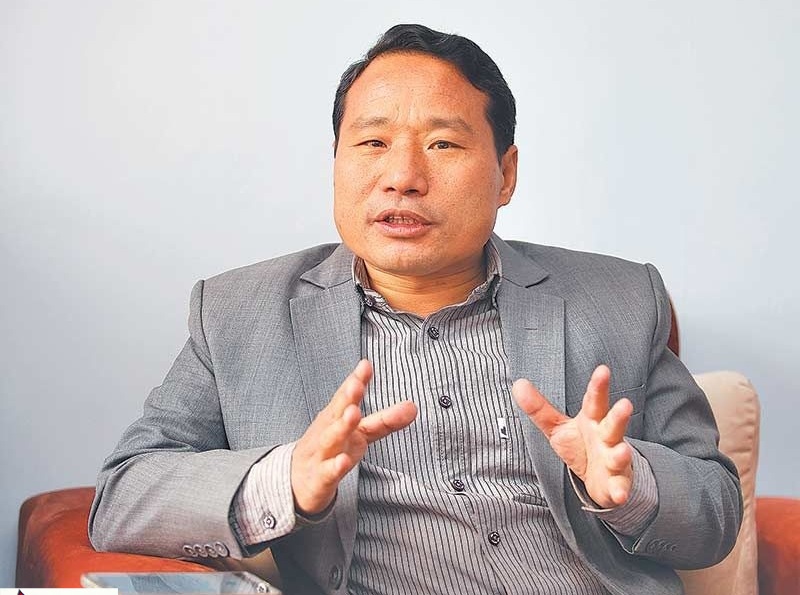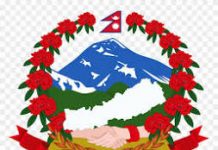Tourism is considered one of the hardest hits by the current pandemic called COVID-19. The sector is experiencing a rapid and sharp drop in demand and a surge in job losses at global level, putting many small and medium enterprises at a brink of collapse.
According to World Travel and Tourism Council, 75 million workers in travel and tourism business worldwide are directly at risk due to pandemic, and world’s GDP amounting to $2.1 trillion seems to be in loss.
A study entitled Rapid Assessment of the Social and Economic Impacts of COVID-19 on the vulnerable groups in Nepal commissioned by the UN Development Programme in Nepal and conducted by the Institute for Integrated Development Studies shows that the Covid-19 pandemic has disrupted supply chains, shut or threatened the survival of small and informal enterprises, and made people highly vulnerable to falling back into poverty through widespread loss of income and jobs.
The study shows that every three in five employees have lost their jobs in the micro and small businesses that were surveyed; they have seen a fall of 95 percent in average monthly revenue. Given the international travel restrictions and fall in discretionary disposable incomes worldwide, tourism receipts in Nepal are projected to fall by 60 percent in 2020 resulting in a loss of foreign currency earnings worth $400 million.
The government had announced Visit Nepal 2020 to encourage investment. Nepal’s hotel industry was once again on a building spree. A dozen of five-star hotels were expected to come by 2020 fuelled by optimism that the Visit Nepal 2020 will draw two million tourists and that growth will continue in the years ahead. An estimated Rs.45 billion has been injected into the hospitality industry, despite high-interest rates.
According to Nepal Economic Survey 2018-19, the foreign currency equivalent to Rs 67.09 billion was earned through the tourism in 2017-18. This figure is 71.9 percent of the total amount of foreign currency earned through export of goods, 24.8 percent of the total foreign currency earned through the total export of goods and service, 5 percent of the total foreign currency earned and 2.2 percent of GDP.
Investors are now feeling the largest economic shock that Nepal has never experienced before—deadly than the 2015 earthquake and subsequent trade embargo imposed by India.
Amid such crisis, the budget for the next fiscal year 2020-21, starting mid-July, announced on May 28, however, did not address the demands of hoteliers and industry insiders are still urging the government to address the sector. The major problem faced by the entrepreneurs is the payment of their workers’ salaries as they have not been able to earn a penny in the last three months. Some entrepreneurs are not being able to pay their hotels rent.
The government has not taken responsibility of the entrepreneurs who have been paying huge taxes and creating tens of thousands of jobs.
Entrepreneurs are now suffering from stress as there is no sign of ending the pandemic any time soon. And even the travel restriction is lifted; it will take months for the country like Nepal to attract tourists by building their confidence to travel in Nepal which has poor health infrastructure and facilities.
Most of the hotelier in Kathmandu says that they upgraded their properties by spending Rs.3 to Rs.4 million. With no business, there is no way to pay the bank installment. How can they survive now?
Need to Save Depressed Hoteliers
There are many cases of suicides which are directly and indirectly linked to crisis caused by pandemic that led to financial insecurity, depression, insecurity of employment, loss of employment.
If the government does not pay attention to these issues as soon as possible, mental health problems will create a frightening situation not only among the businessmen but also among the general public.
Although, the government has set up a Rs.50 billion fund to provide relief to businesses and also made provision to provide refinancing loans and business operating expenses to the employees at 5 percent interest, entrepreneurs are not clear about how effective it is in current situation and how the government distributes it to the entire business community.
Small and medium hoteliers are not much optimistic that the government’s bailout fund will address them as a whole. Lately, the government has decided to turn the hotels into quarantine facilities, for those returnees who could afford to pay, that could put some hotels into an earning mode and protect their employees to some extent. But these hotels are only associated with the Hotel Association of Nepal and has not been able to accommodate a large number of hotels and lodges– roughly around 80,000 small and medium categories—across the country.
The hotels and lodges had agreed to manage quarantine for returnees at a lower price than the price quoted by the Hotel Association of Nepal considering the financial condition of Nepalis working in Gulf countries. It is seems that the government has deliberately ignored the low cost initiative and has called into question the government’s policy and foresight.
If the government does not support small and medium hoteliers who pay millions of rupees in taxes and employing tens of thousands of people, the industry will be ruined in the near future.
Therefore, the government should come up with a clear policy and programme to revive the industry by giving an equal treatment to survive and grow.
(Prasai is a hotel entrepreneur, lyricist, song composer and singer)















